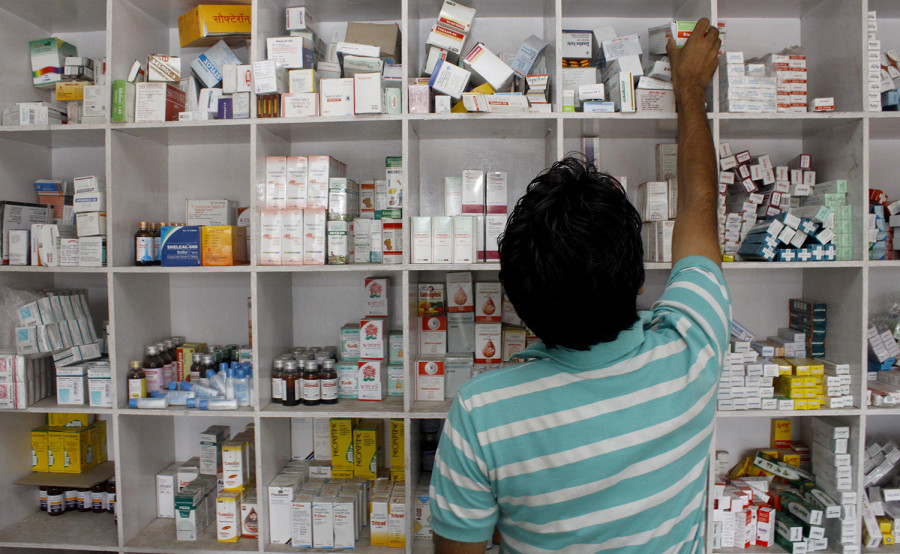Health
Drug regulator directs firms to increase import of life saving medicines
There are shortages of drugs for diseases like asthma and diabetes and those needed for intensive care.
Arjun Poudel
The Department of Drug Administration has directed importers and suppliers to increase the import, supply and stockpile of medicines of chronic diseases—asthma and diabetes—and drugs required in intensive care units.
The directive from the national drug regulator comes amidst rising Covid-19 cases and complaints of a short supply of life saving medicines used in intensive care units and those needed to treat chronic diseases.
“We have directed importers, suppliers and wholesalers to import and boost the supply of medicines that are in short supply,” Narayan Prasad Dhakal, director general at the Department of Drug Administration, told the Post. “We have been taking updates on the stocks of those medicines every week.”
Due to a prolonged lockdown and halt in public transport, supply of the life saving medicines, especially those imported from India, has been affected. The department has also directed officials to help importers bring in critical medicines and healthcare supplies without hassles at the customs.
According to Dhakal, his office has sorted the registration and renewal issues of some importers and products to prevent a critical shortage of the essential medicines in the country. The department was briefed on the shortfall of medicines required for asthma patients, some medicines used in dialysis and some required for use in intensive care units.
Santosh KC, spokesperson for the department, said that stock of medicines like Heparin, an injection used to treat and prevent blood clots in veins, the atropine injection used to treat swelling, adrenaline injection used to treat serious allergic reactions, and other injectable drugs required for intensive care are available only in limited quantities.
“If the rising Covid-19 cases lead to a spike in serious conditions that require intensive care, we will need more such medicines,” said KC. “We have alerted importers that those medicines could be used up fast.”
Supply of the medicines, especially those imported from India, has been affected due to a rapid surge in Covid19 cases in the neighbouring country and a prolonged lockdown and travel restrictions on both sides of the border. The Indian government had restricted the export of some essential drugs needed in the treatment of critical Covid-19 patients after the disease broke out in India. But the restrictions were removed later.
According to KC, some districts have reported shortages of the medicines for chronic diseases but that is not due to issues in import.
“It was a supply problem caused by the halt in transportation,” said KC. “Most of those problems have been addressed.”
The department claimed that alternatives to the medicines being used by patients are available in the market but people complained after they did not get the particular brand they had been using.
With the monsoon gathering pace, the department has also urged national drug manufacturers to increase production, especially of the drugs required to treat water-borne diseases such as diarrhoea, typhoid and jaundice.




 9.89°C Kathmandu
9.89°C Kathmandu















